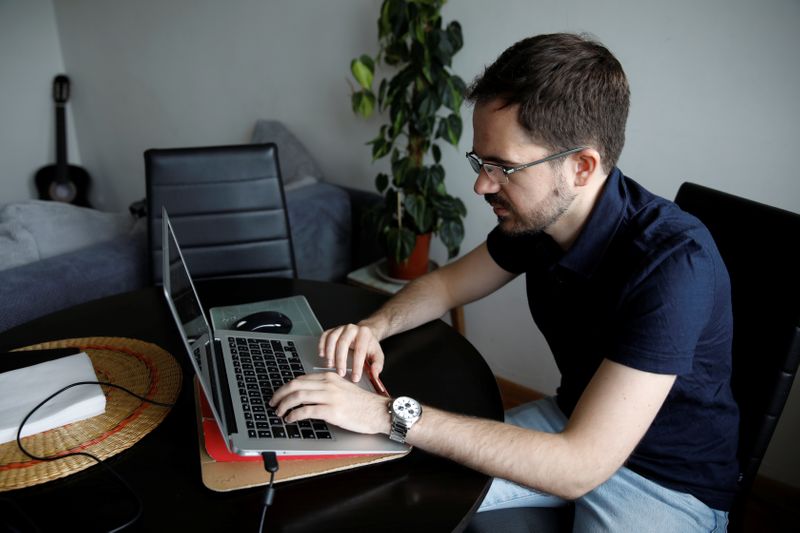By Alan Charlish
WARSAW (Reuters) - When Mario Pereira's Polish colleague, sitting not far from him in a Warsaw office, sent him an email rather than walking over to speak, the Portuguese was shocked.
Coming from a culture where he says there is much more face-to-face contact between workers, Pereira found it "awkward". In Portugal "it is somehow important to see the person," he said.
Yet the workplace of the future is likely to be more Polish than Portuguese.
Research suggests the fact that central and eastern Europeans have fewer face-to-face contacts at work may have contributed to lower rates of coronavirus infection than elsewhere on the continent.
"For the professional and managerial jobs we find that in the central and eastern European countries the frequency of working with clients at clients' premises, meeting with clients... is lower," said Piotr Lewandowski, president of the Institute for Structural Research in Warsaw.
His research, drawing on data from the U.S.-based Occupational Information Network (O*Net) and the EU-backed European Working Conditions Survey (EWCS), points to differing labor force structures and working habits as accounting for up to 25% of the difference in the rate of coronavirus cases.
Poland, the Czech Republic, Slovakia and Hungary, with a combined population of around 64 million had reported a total of 36,890 coronavirus cases as of Thursday. The United Kingdom, with a population of over 66 million, had 267,240 cases and Italy, with around 60 million people, had 231,139.
A number of factors have contributed to the lower rates of infection in central and eastern Europe, researchers say, most importantly early, strict lockdown measures.
Lewandowski says eastern Europe also has a higher share of agricultural and manufacturing jobs which require contact with fewer people than the service sector jobs that dominate western economies.
Yet there is a general consensus among company leaders and governments that as staff begin to return, workplaces will need to incorporate social distancing.
Lewandowski's calculations based on EWCS data showed that before the lockdowns, the share of legal, social and cultural professionals who met clients a few times a month in the United Kingdom and Italy was 79% and 73% respectively. In the Czech Republic it was 38% and in Poland 47%.
"Certainly the London working culture is more sociable, there's more after-hours drinking, more lunching and getting out and meeting clients," said Michael Dembinski, chief advisor at the British Polish Chamber of Commerce.
Not everyone is enthusiastic about the increased social-distancing that will be needed at work during the pandemic.
Tomasz Szala, 40, an IT consultant based near the southern Polish city of Wroclaw, who works from home, said: "I would like to change to some regular team which is having regular meetings face-to-face and not on Skype or Google (NASDAQ:GOOGL) Hangouts."
